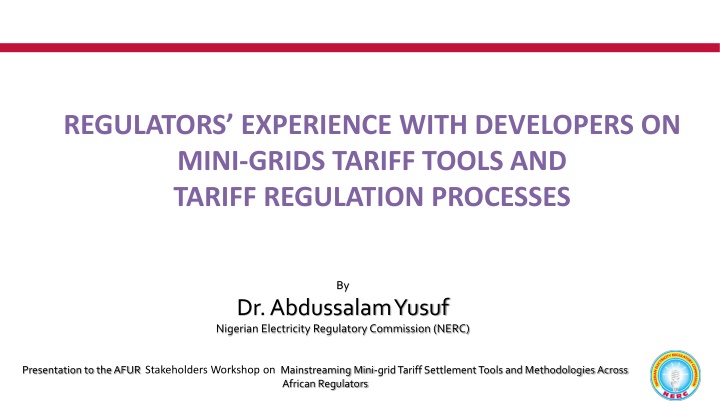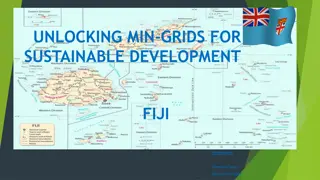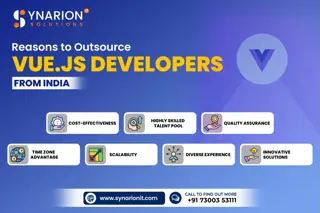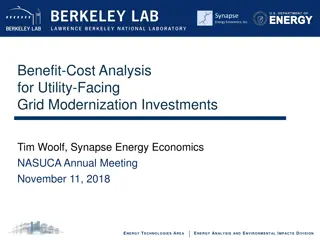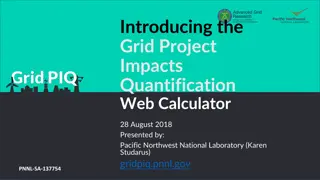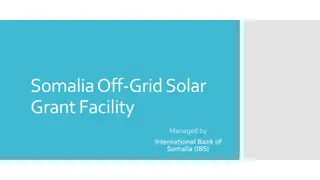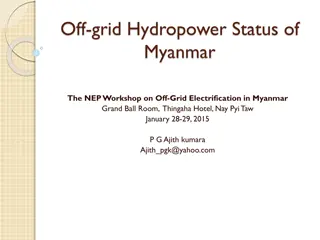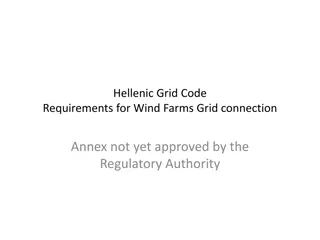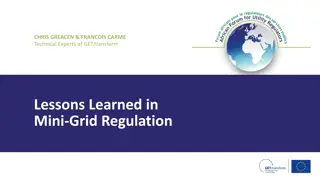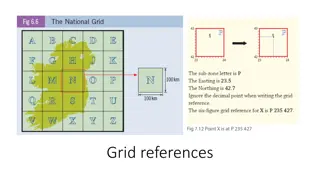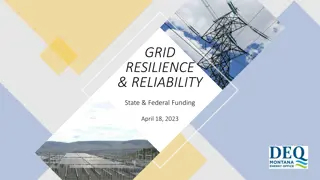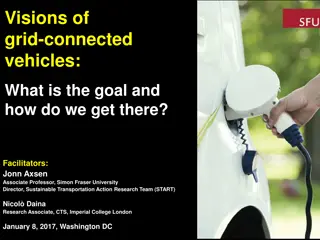Challenges Faced by Developers in Mini-Grid Projects
Developers working on mini-grid projects encounter various challenges such as financial illiteracy, poor feasibility studies, improper system sizing, and incomplete documentation. These issues impact tariff calculations, project timelines, and overall success. Addressing these challenges is crucial for the sustainable development of mini-grid projects.
Download Presentation

Please find below an Image/Link to download the presentation.
The content on the website is provided AS IS for your information and personal use only. It may not be sold, licensed, or shared on other websites without obtaining consent from the author.If you encounter any issues during the download, it is possible that the publisher has removed the file from their server.
You are allowed to download the files provided on this website for personal or commercial use, subject to the condition that they are used lawfully. All files are the property of their respective owners.
The content on the website is provided AS IS for your information and personal use only. It may not be sold, licensed, or shared on other websites without obtaining consent from the author.
E N D
Presentation Transcript
REGULATORS EXPERIENCE WITH DEVELOPERS ON MINI-GRIDS TARIFF TOOLS AND TARIFF REGULATION PROCESSES By Dr. Abdussalam Yusuf Nigerian Electricity Regulatory Commission (NERC) Presentation to the AFUR Stakeholders Workshop on Mainstreaming Mini-grid Tariff Settlement Tools and Methodologies Across African Regulators
Outline Financial Illiteracy Poor Feasibility Studies Proper System Sizing and Design Incomplete documentation 2
The peculiarities of Mini-grid projects Minigrid projects are vertically integrated Generally below 1 MW Located in remote rural areas Owners are usually small players and often with limited cross sector experience(Technical/financial/ICT) 3
Financial Illiteracy Many of the developers lack financial literacy as such are unable to use financials tools especially the Minigrid Multiyear Tariff Order (MYTO) to properly calculate the tariffs. Lack of appropriate understanding of the MYTO has led to a lot of delays in submission and processing of applications High turnover of Staff due to poor remuneration 4
Poor Feasibility Studies Despite the one-year (renewable for another 12 months) exclusivity agreement; developers failed to utilise the period to conduct comprehensive feasibility studies that will enable them come up with a solid business plan Create unrealistic load assessment and system design 5
Proper Systems Sizing for Minigrids Steps from poor feasibility studies Poor system sizing can lead over/under sizing of the minigrid with significant impact on tariff and power generation; - Over-sizing the minigrid systems might result in high and unsustainable tariffs Under sizing; leads to inability to satisfy demand as well as equipment overloads -
Incomplete Documentation Light handed Regulations; The Minigrid Regulations is a light handed regulation requiring no physical contact between the developer and the Commission Majority of services including application for permit or registration can be done online via a portal developed for the purpose Enquiries are normally done through the same portal or via email However, research and observation has shown that majority of developers submit incomplete documentation to the portal- unsigned and un- notarised documents. Failure to submit company documents Failure to submit the minigrid MYTO for application for permit 7
Recommendation Frequent capacity building on the tools Creating a pool of expertise on Minigrid system design and tariff model Data base of potential Minigrid site Publish the names of sites temporary reserved under exclusivity agreement. Tariff model should be simplified to allow non-expert understanding Web based reporting application should include options for text messages from mobile phones as many villager have no access to internet services. Subsidies should be targeted at the distribution network infrastructure 8
